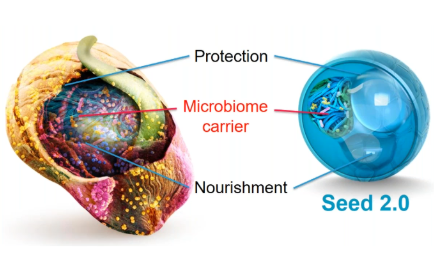Cannabiom
Projects ·Cannabis has quickly emerged as a prominent player in both the food and nutraceutical markets, particularly in Europe and the USA. As its popularity continues to grow, farmers face new challenges in producing high-quality Cannabis that involve production stability, resource efficiency, and precise cannabinoid profiles.
Recent studies suggest that microorganisms naturally found in plant seeds could offer a promising alternative to chemical fertilizers. These beneficial microbes not only enhance agricultural productivity but also support healthier plants and soils. Despite their potential, Cannabis seed endophytes—microorganisms that live within the plant tissues—have been little explored, and no practical applications have been developed for their use in Cannabis production.
This project will identify key endophytes in various Cannabis genotypes via advanced multidisciplinary techniques, and investigate the use of a fully biodegradable hydrous polymer to deliver these beneficial microbes into cultivation systems. The ultimate goal is to create an innovative, bio-based product that improves microbial diversity in Cannabis farming, showcasing broader agricultural benefits in the process. The use of Cannabis seed endophytes presents an exciting new biotechnological solution to meet the growing global demand for Cannabis products, offering a sustainable approach to cultivation that could transform the industry.

Funding: The Cannabiom project, short for Combination of Endophytes with functional Biopolymers (HydroDots) for improved Cannabis cultivation was funded by the The Austrian Research Promotion Agency (FFG) in the frame of the Bridge program (32nd Call for Proposals Bridge 1), together with HydroUnity QLabs GmbH, with the duration of 37 months.

Keywords: Cannabis • Biopolymers • Endophytes • Plant microbiome • Sustainable plant cultivation
